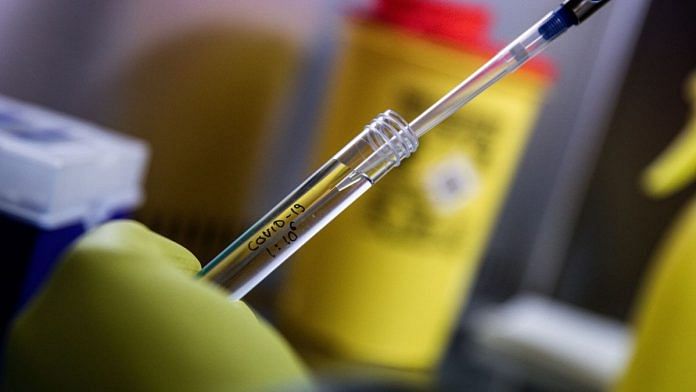New Delhi: Immunity in Covid-recovered patients is long-lasting and gets a 50-fold boost after vaccination, according to a new study.
The study, published in the journal Nature Monday, also said that the mRNA vaccines can sufficiently protect against emerging mutations.
More than a year after the Covid-19 pandemic broke, the emergence of new variants that appear to be more transmissible and resistant to antibodies has added to the challenge of controlling the spread of the disease.
To understand how long the immunity lasts, researchers from the Rockefeller University, Weill Cornell Medicine and California Institute of Technology assessed the blood samples of 63 people who had recovered from Covid-19. The samples were collected 1.3, 6.2 and 12 months after infection.
Of these 63 people, 41 per cent had received mRNA vaccines.
The study found that in Covid-recovered patients, antibodies against the protein known as receptor binding domain (RBD) of SARS-CoV-2 and neutralising activity remain relatively stable from six to 12 months, without vaccination.
A receptor-binding domain is a key part of the virus located on its ‘spike’ protein that allows it to latch onto the cell to gain entry into cells and lead to infection.
Memory B cells — a type of white blood cells that learn to recognise specific viral proteins — was also found to remain stable upto 12 months.
Also read: New atomic-scale 3D map of Covid virus protein could hold clue to preventing lung damage
Antibody levels
In addition, the team found that vaccination increases all components of the antibody response. Antibody levels remained relatively unchanged between six to 12 months after SARS-CoV-2 infection, and that vaccination further boosted this activity by nearly 50-fold.
The study found that the ability of vaccine-induced antibodies to neutralise variants of concern was comparable to or greater than that against the original virus.
Researchers also identified that the broad response against the SARS-CoV-2 virus involves what is known as the antibody somatic mutation — a cellular mechanism using which the body’s immune system adapts to the changing virus during the course of the infection.
This results in antibodies that are exceptionally resistant to mutations in the SARS-CoV-2 RBD — including those found in variants of concern
In addition, B cells that produce a broad range of potent antibodies are retained in the body over time and expand dramatically after vaccination.
The data suggest that immunity in Covid-recovered individuals will be very long-lasting, researchers said. Along with this, Covid-recovered patients who receive mRNA vaccines produce antibodies and memory B cells that should be protective against circulating SARS-CoV-2 variants, the study concluded.
(Edited by Neha Mahajan)
Also read: AY.1 — The new Covid variant on world radar stems from Delta variant, linked to immune escape



